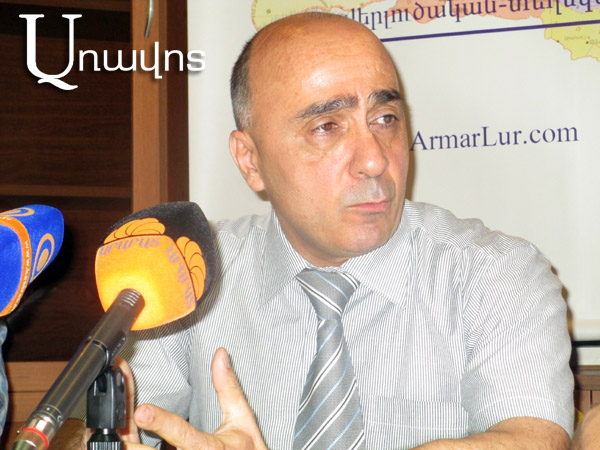Russian-Turkish conflict a new economic opportunity for Armenia
“Certainly, there is a difference in potentials, but by the part that we can and are able to supplement, we should use it. Let us not forget that we export the finished product, especially agricultural, mainly to Russia. There is an agreement with Eurasian Economic Union and I think a favorable one for us, and it should be carried out into effect as quich as possible,” said Doctor of Economics, professor Ashot Tavadyan, in an interview with “Aravot”, referring to the expansion of export volumes of fruit and vegetable from Armenia to Russia.
Recently, after the meeting held in the office of Russian Prime Minister Dmitry Medvedev, official rep of The Russian government Arkady Dvorkovich said that the import of fruit and vegetables from Turkey to Russia will be banned. The sanctions will go into effect in a few weeks.
The official rep of “Rosselkhoznadzor” Alexei Alekseenko announced։ “The news on fruits and vegetables, obviously, rejoiced our neighbors, the South Caucasus countries: Armenia; Georgia and Azerbaijan accepted this news very positively while Iran is ready to increase the volumes of its food exports, which, incidentally, are really very good quality,” Dvorkovich announced.
Read also
Alexei Alekseenko has also said that Armenia is now ready to fill this gap and increase the cultivation and export of fruits and vegetables to the Russian market. The issue and the necessity of defining sanctions against Turkey by Russia, recall, has its political motive associated with the downing of the Russian warplane. A day before, at the government, Prime Minister Hovik Abrahamyan held a meeting with the reps of interested state agencies and business sector on promoting exports of local products. In particular, he talked about issues promoting the export of local products to Russian Federation and EaEU member countries.
Hovik Abrahamyan noted that the government is willing to support any reasonable initiative aimed at boosting exports, encouraging the businesses not to miss the opportunities created under this situation and to increase the volume of exports of products to the Russian market. Ashot Tavadyan notes that according to the EaEU Treaty, it is necessary to run a macroeconomic policy. The provisions, especially on monetary policy defined by the EaEU, should be specified as soon as possible to have more favorable conditions for the export. In this regard, he emphasizes the undertaking and the activeness of the government and the Central Bank.
In terms of sanitary norms and customs duties for the export of finished products to Russia, our interlocutor notes that it is not a problematic issue, and we should definitely use this new opportunity. “It is also appropriate to take loans and to accelerate the development of the greenhouse industry in Armenia, which the President of Armenia has declared it as a priority,” said our interlocutor, adding that the government should try to substitute the loans of structural nature by specific loans, including also from the European Bank, which is a development path for the business, in particular, the greenhouse economy.
During one of the recent discussions, the Chairman of Armenia’s Union of Industrialists and Entrepreneurs, Arsen Ghazaryan, complained that it costs more expensive to Russia, particularly Moscow, than to China. Ashot Tavadyan does not see any problems. He says that everything requires a calculation, and if it is beneficial to export goods to China, we should export and if there are problems that need to be addressed, then based on the clauses of the EaEU Treaty, we need to make specific proposals driven from our best interests. He brings Prime Minister’s proposal as an example that the sales of strategic products in the EaEU area should be made in rubles and believes that it is necessary to possibly speed up this process favorable for us.
Back to the reduction of Russia-Armenia commodity turnover after Armenia’s accession to the Eurasian Union, the economist notes that it is not the fault of the EaEU. “After all, there are clauses that put requirements on the public bodies, and which are useful for us. We need to implement these clauses. If an agreed monetary, especially foreign exchange policies, are not carried out, then the terms that are created for the export can become annul.”
Nelly GRIGORYAN
“Aravot” daily






















































